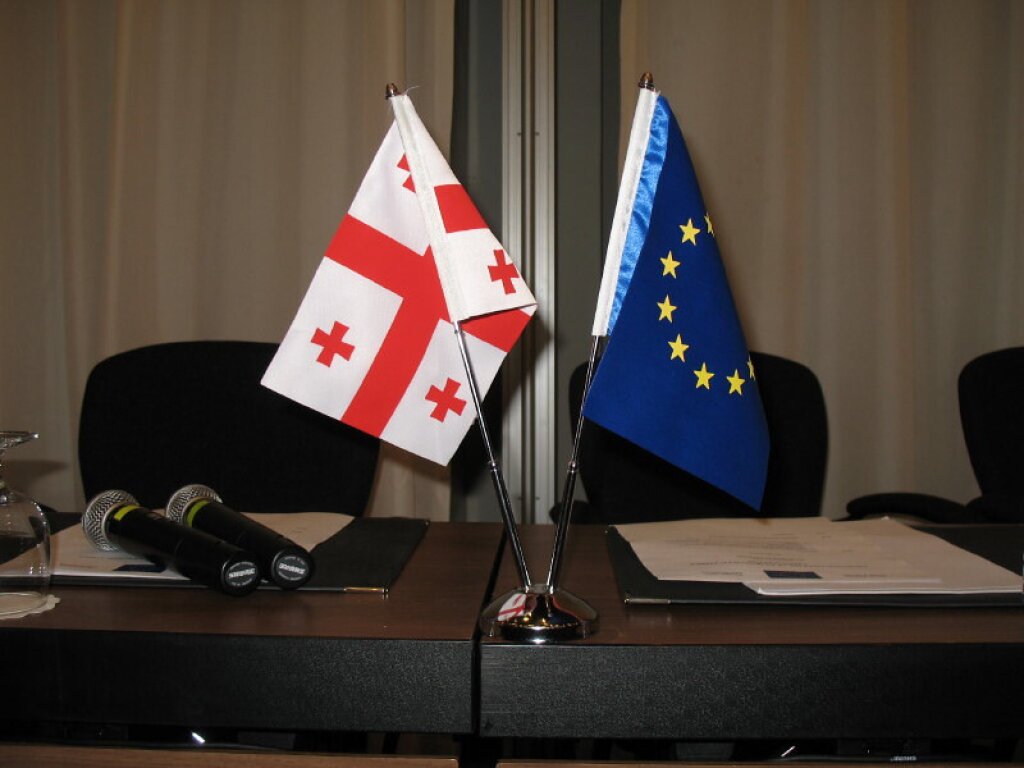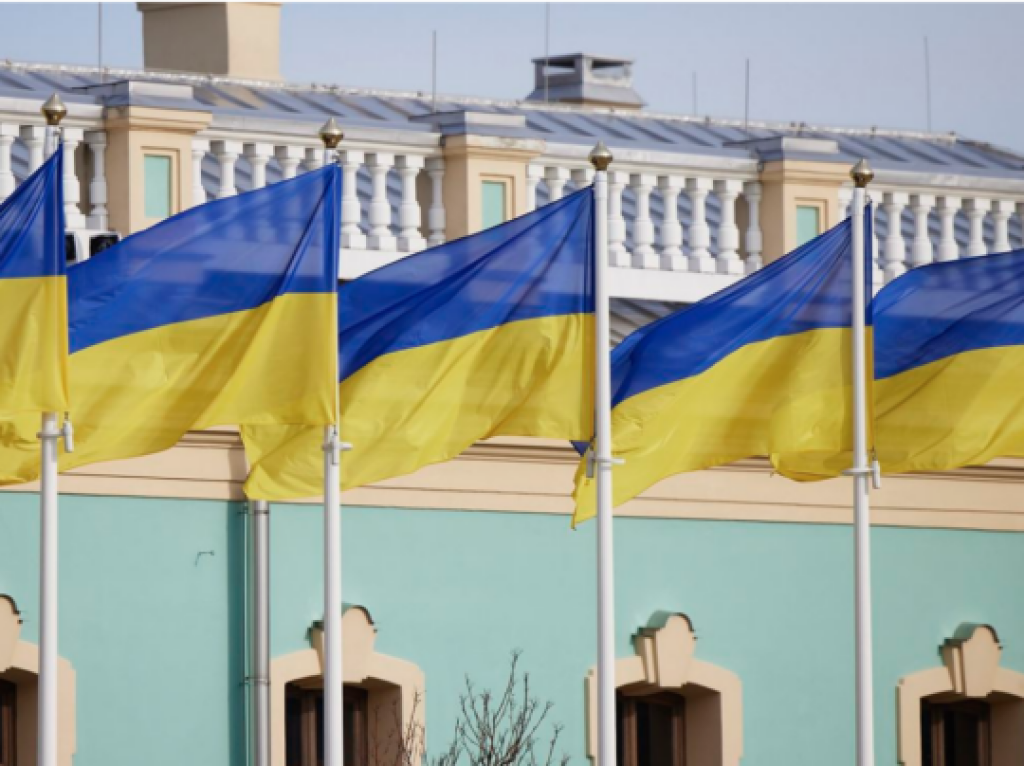Lia Tsuladze is Executive Director of the Center for Social Sciences and Associate Professor of Sociology at Tbilisi State University, Georgia. Her research deals with political, media and popular discourses on Georgia’s Europeanization, issues related to national identity, and civic activism.
In April 2024, Georgia’s ruling party—Georgian Dream (GD), which holds a constitutional majority—(re-)introduced a law “On Transparency of Foreign Influence.” Better known as the “foreign agent” law, this legislation targets civil society and independent media and has triggered continuous large-scale protests around the country. In this context, both domestic actors and strategic partners again began questioning the ruling party’s pro-European aspirations.
GD’s Euro-Atlantic ambitions first came under scrutiny a decade ago. In November 2014, small pro-European parties like the Republican Party and the Free Democrats left the GD coalition, declaring that Georgia’s Euro-Atlantic course was in danger. GD became defensive, announcing that the departure of “a few minor parties” from the coalition by no means indicated that the ruling party was abandoning a European course. Similar questions came up again in January 2015, when GD’s founder and its first Prime Minister, the billionaire Bidzina Ivanishvili, attacked local NGOs, accusing them of tarnishing Georgia’s image.
In April 2017, the Parliament of Georgia began discussing a legislative initiative to ban NGOs that receive international funding. This initiative marked a first, unsuccessful attempt to adopt the “foreign agent” law. A second attempt, in March 2023, also failed due to massive protests and pressure from Georgia’s Western partners. In June 2019, the ruling party once again seem to veer away from a pro-European course. At that time, a member of the Russian Duma occupied the seat of Georgian parliamentary speaker Irakli Kobakhidze during the Inter-Parliamentary Assembly of Orthodoxy. A massive protest followed, resulting in Irakli Kobakhidze’s resignation.
Since then, citizens have rallied in front of Parliament each June, urging GD to enact the judicial and electoral reforms the EU has mandated as a condition of granting the country candidate status. In response, GD has consistently assured both domestic stakeholders and the EU that action was imminent, yet repeatedly failed to deliver. In July 2021, GD withdrew from an agreement spearheaded by European Council President Charles Michel that had aimed to eliminate the country’s political polarization. On this occasion, for the first time, the EU itself suggested that Georgia’s ruling party was deviating from a European course, repeating sentiments domestic opposition parties had already voiced.
GD again reacted defensively, announcing that Georgia’s Europeanization was in progress and that it was not GD but opposition parties that had deviated from a pro-European course. From this point forward, the ruling party has engaged in a continuous blame game with both foreign and domestic opponents. Meanwhile, pro-governmental Imedi TV and pro-oppositional Mtavari TV, the two most popular TV channels and those enjoying the highest trust among the Georgian public, have adopted respectively polarized positions on nearly every political issue, especially Georgia’s Europeanization—meaning that political polarization has been fully transposed onto the media.
GD’s governing style further aggravates polarization with tactics that increasingly approach what Austrian linguist Ruth Wodak has called the politics of fear. GD actors have systematically attacked and demonized the party’s opponents, whether these belong to the political opposition, to civil society, or to the young people—especially Gen Z—protesting the “foreign agent” law. For this purpose, GD deploys what political theorists Christopher Walker and Jessica Ludwig call sharp power, meaning, strategies of information manipulation that aim to disorient the public, especially by spreading contradictory messages.
Current prime minister Irakli Kobakhidze’s declared “pragmatic politics” vividly exemplify sharp power strategies. On the one hand, GD states that it aspires to Euro-Atlantic integration, going so far as to promise citizens that Georgia will attain EU membership by 2030—for instance, as in GD founder and honorary chair Bidzina Ivanishvili’s statements at a government-organized rally in support of the “foreign agent” law on 29 April 2024. On the other hand, GD is pursuing a politics of “non-irritation” toward Russia, presenting itself as safeguarding peace for Georgia and labeling those who condemn Russia’s invasions of Ukraine “war parties.” At the government-organized rally in April, Bidzina Ivanishvili went further by referring to a “global war party.” This putatively “global” entity is now being accused of controlling the EU and NATO and attempting to provoke a revolution in Georgia using local proxies—the so-called “radical opposition” and NGOs.
This conspiracy theory underlies the GD’s rationale for adopting “foreign agent” legislation, which was finally signed into law when GD overrode the President’s veto on 28 May 2024. The adoption of this law reflects a broader Georgian trend toward de-Europeanization. To better understand this trajectory, it is useful to consider three levels of the opposite phenomenon, namely Europeanization: the normative level, in which local legislation is brought into line with EU standards; the discursive level, in which rhetoric become consistently European; and the behavioral one, in which EU norms are enacted in practice.
On the behavioral level especially, Europeanization has been problematic in Georgia. For instance, although anti-discrimination legislation was codified a decade ago, the rights of ethnic, religious, and sexual minorities are still openly violated. On the other hand, in the past, Georgia appeared to be Europeanizing on both the normative and discursive levels, i.e., when it came to approximating EU legislation or adopting pro-European rhetoric. Today, we are witnessing GD’s normative and discursive de-Europeanization. The newly adopted “foreign agent” legislation has come under sharp criticism from the EU for its blatant targeting of civil society and independent media, and has accordingly hindered Georgia’s EU accession talks. In another step away from normative Europeanization, GD has recently adopted a law banning “LGBT propaganda.”
GD's discursive opposition to the EU became obvious upon its withdrawal from Charles Michel's agreement in July 2021. It further intensified after Russia's full-scale invasion of Ukraine in 2022 (when Georgia refused to join the EU's sanctions against Russia), transforming from defensive to offensive discourse. The latter peaked in April 2024, when the ruling party’s honorary chair attacked the country’s strategic allies and accused them of trying to provoke a revolution in Georgia.
Although the political elite’s rhetoric is nominally directed at the EU, it primarily, if not exclusively, targets domestic audiences. With 70-80% of Georgians supporting Euro-Atlantic integration (as shown in CRRC Georgia’s Caucasus Barometer surveys since 2009), the ruling party avoids openly rejecting this path. Instead, it promises domestic audiences EU membership under the slogan “Toward Europe with Dignity.” Here, “dignity” refers to safeguarding Georgia’s sovereignty from liberal values, a key theme in GD’s statements since May 2023. Unsurprisingly given the models for its recent legal innovations, GD’s ostensibly “pro-European,” but actually narrowly nationalist discourse closely resembles its Russian counterpart.



